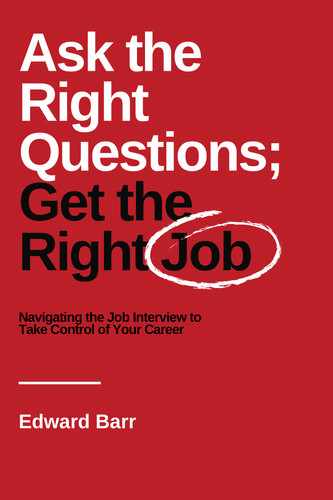In my 35 years of experience in management and education, I have interviewed many prospective employees and counseled many students preparing for job interviews. Almost universally, I have found both groups, candidates and students, unprepared for their interviews. I don’t mean to say that they weren’t dressed well, or weren’t eager and ready to answer the questions to be posed to them. Most were. They were, as young people can be, enthusiastic and effervescing with optimism and expectation. However, most of them considered the interview a one-sided affair where the potential employer and the employer’s representative have all the power—to interrogate, accept, or dismiss them.
Teaching in the Master of Science in Computational Finance program and the Heinz College of Public Policy and Management at Carnegie Mellon University, I have counseled scores of students from all over the world. I have encouraged them to consider their interview and prospective employment differently, that is, as a partnership, a marriage in the truest sense, a commitment of their time, talent, and energies—at a minimum a mutual exchange. And, as a former Chief Marketing Officer at a Carnegie Mellon University for-profit company, and as Vice President of Marketing at a large university health system’s medical practice division (and Director of Corporate Communications at a successful for-profit television production company), I interviewed and hired for a variety of staff positions. In addition, I chose outside vendors to meet certain marketing needs for the organization.
I use my years of experience to try to convince my Carnegie Mellon students and others who come to me for advice to approach an interview on equal terms with their potential employers. After all, as prospective employees, they bring with them the skills, talents, and creativity to enrich (in the fullest meaning of the word) the workplace of their employers. Why should they not view the interview as an equal exchange, a true dialogue?
A student visited me lamenting his recent performance in interviews. He kept saying, “I really wanted them to choose me.” I stopped him. “But, did you really want to work for them? How could you make that decision when your whole mindset focused on the employer choosing you? A better mindset, one that allows for a more confident presentation of you as the candidate, would have been to be thinking, ‘Do I want to work for them?’ That would encourage you to ask more questions and engage the interviewer.”
With that predisposition, candidates enter the job interview ready to learn as much about the employer as the employer wishes to learn about them. They do this by preparing, if not in writing, at least in their minds, a set of questions the prospective employer must answer. These questions vary from the global (what is this organization’s mission) to the specific (are employees encouraged to use personal time).
I am, of course, anxious to tell my student friends, and some of the others who find their way to me, others who have no job or wish to change jobs, that they must maintain respect, perspective, and decorum, that is, they must not be arrogant about this questioning. This applies to face-to-face interviewing as well as to virtual interviewing, which has become very popular, both with humans and machines. After all, the prospective employer does have the ultimate power.
I have found that dialogue in an interview helps to reveal the most information about not only the candidate, but also the prospective employer. This dialogue helps a potentially deadly one-hour session become more interesting, enjoyable, and productive. And, most importantly, it gives the job candidate more of the kind of useful information he or she definitely needs to make the right decision about accepting a position.
Does it guarantee a perfect match between candidate and employer? No, it does not. NO set of questions will. Does asking these questions replace other intelligence-gathering activities? No, it does not. Candidates must use the Internet, published reports, contacts within the organization, competitors, and any other source they can find to learn more about the organization whose company they hope to keep.
Ask the questions pertinent to you from the following pages, and you will see how well the organization has prepared, or ingrained in, your interviewer the kind of information that should be there (and his or her interpretation of that information).
In many ways, a job interview is an unnatural act. Two people sit in front of each other, face-to-face or on a virtual platform, and pretend, both portraying themselves in the very best light and ignoring any frailties. When you ask questions, you can begin to break that façade and both of you benefit. Add these questions to your repertoire, along with enthusiasm, a good cover letter and resume, and a genuine interest in the company and its representatives, to win yourself a great job!
